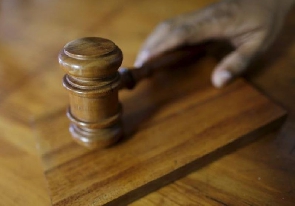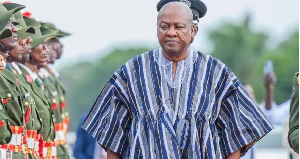Two police officers, Corporal Juma Mswa and Constable Mataba Matiku, were sentenced to death on January 26, 1998 for the murder of Lieutenant General Imran Kombe.
On June 30, 1996, Mswa and Matiku were part of a team of police officers who tried to stop Kombe's car at a checkpoint.
Kombe was unarmed and tried to run away, but the officers chased him down and shot him multiple times, killing him.
At trial, the officers argued that they had acted in self-defense, believing that Kombe was a dangerous criminal.
However, Judge Buxton Chipeta found that the officers had intentionally and unlawfully killed Kombe.
In his verdict, Judge Chipeta noted that the officers had every opportunity to arrest Kombe without using lethal force.
He also found that the officers had not been acting on the orders of their team leader, who had specifically ordered them not to shoot Kombe.
The officers appealed their convictions, but the Court of Appeal upheld the death sentences.
"But when the deceased got out of the car, these two defendants knew he was unarmed. In addition, the deceased did not try to confront them, instead, he ran away while staggering.
At that time, the third and fifth defendants were not more than 30 meters apart, according to the testimony of the third prosecution witness, and it could be less than that distance according to the additional details of the fifth defendant," he explained.
Judge Chipeta continued, "Therefore, these two defendants had every opportunity to arrest him without using lethal weapons. Based on the evidence and these circumstances, I am satisfied and find that these defendants intentionally and unlawfully killed the deceased."
"Perhaps they shot and killed the deceased to get rid of a famous criminal (as they suspected). In my opinion, this was malicious killing," the judge said, sentencing the two police officers to death.
The appeal
The two defendants were not satisfied with the verdict and appealed to the Court of Appeal, with the first appellant, Juma Mswa, being represented by advocate Ignas Itemba, while the second appellant, Mataba Matiku, was represented by lawyer Godwin Sandi, both from Moshi.
In the first ground of appeal, the appellant Mswa complained that the judge who sentenced him to death had erred in law by failing to answer the question of whether he got out of the car to carry out an order from the team leader of the police officers, Sergeant Mensah.
Therefore, Prof Itemba argued that because of this, the act of his client getting out and firing three shots was legal because he was carrying out a military order.
In response to this ground of appeal, the Attorney General's Senior Counsel, Ama-Isario Munisi, said the first defendant had ordered the other defendants to get out of the car and fire shots into the air, he did not order them to shoot Kombe and kill him.
The judges who heard the appeal, in addressing this ground of appeal, quoted the testimony of the defendant who is said to have given the order, Mensah, who said, "If a suspect is running away, you don't use a firearm unless he also has a firearm. Since they had seen him get out of the car unarmed, it was not wise to attack the deceased with bullets. It is not correct to say that they used moderate force to arrest him because they killed an unarmed person.”
In his testimony, Mensah added that "After the deceased's car stopped, it would have been easy for the defendants (Mswa and Matiku) to chase the deceased and arrest him easily."
In the second argument, which was also raised by the second appellant, Mataba Matiku, and the first appellant, Juma Mswa, it was explained that the court was wrong when it said that when the deceased was getting out of the car, the appellants knew he was unarmed.
The judges said that the appellants admit that the deceased did not pose any threat to them, so they agree with the judge who convicted them that they knew or should have known based on the circumstances that the deceased was unarmed.
In the third argument, the appellant Maswa complained that the court was wrong to convict him as an accomplice to the second appellant in the commission of the murder, when there was no evidence that the two were of one mind.
The judges agreed with the argument and said that the judge who convicted him was wrong to convict the first appellant as an accomplice to the murder when he had already found that they had intentionally and unlawfully caused Kombe's death.
They said that there was no room in those circumstances to consider one as an accomplice and the other as the main culprit, because even at the end of the case, the judge convicted both of them for their malicious intent to kill the deceased.
Africa News of Friday, 3 November 2023
Source: thecitizen.co.tz













